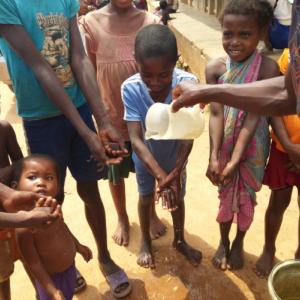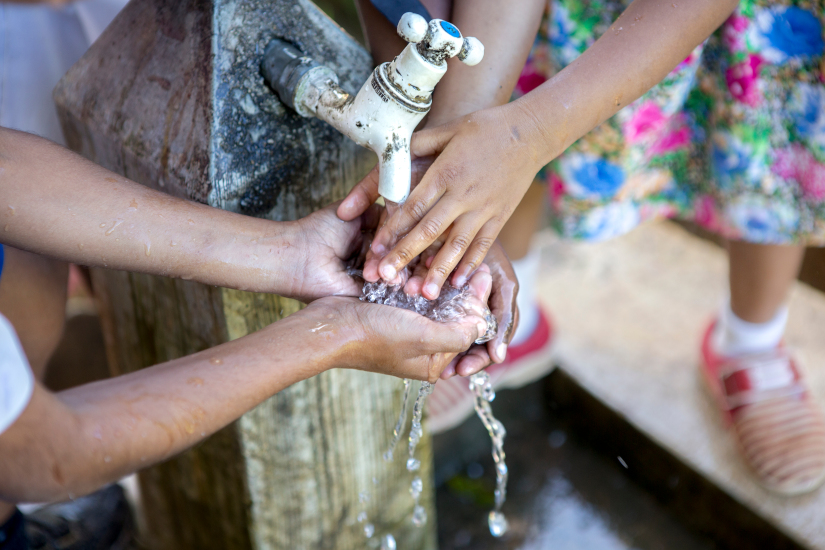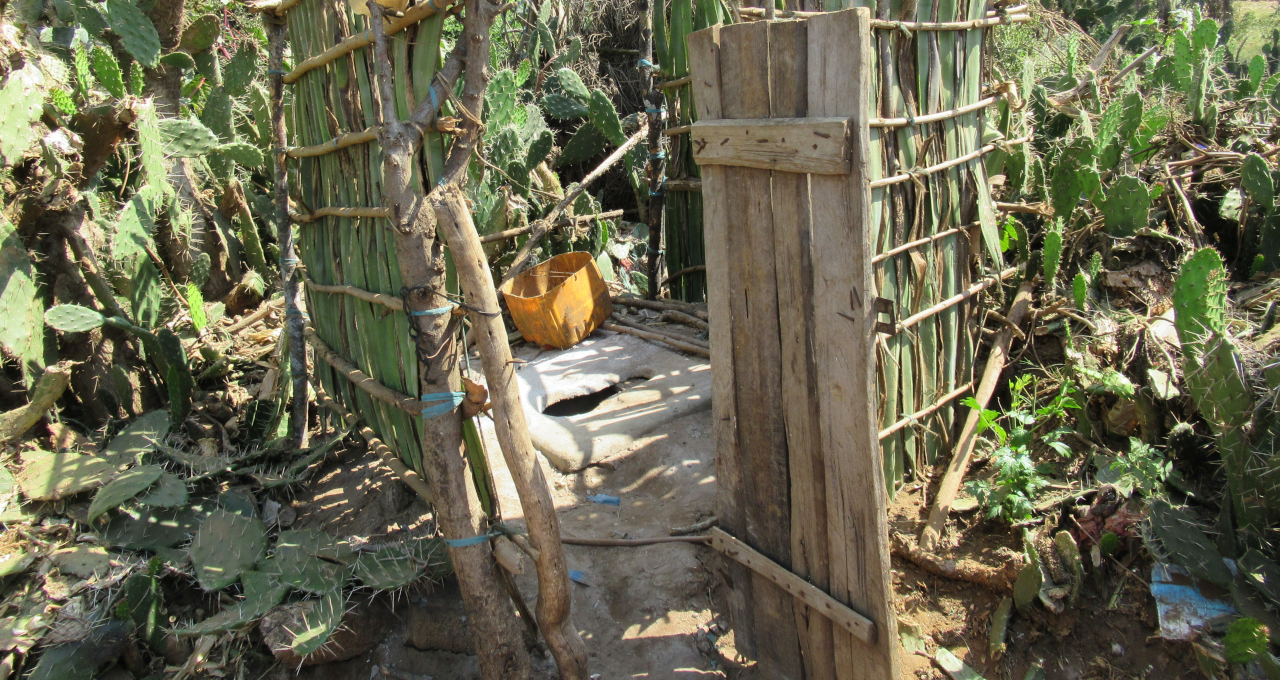Ex-Post Evaluation: Madagascar RANO-HP

The Madagascar Rural Access to New Opportunities for Health and Prosperity (RANO-HP), implemented from 2009 to 2013, aimed to increase sustainable access to safe water supply, improve sanitation coverage, and expand hygiene practices for communities in Madagascar.
Through household survey and interviews with beneficiaries, the evaluation team explored barriers and facilitators of sustainability, focusing on the activity’s sanitation and hygiene components. These included:
- community-led total sanitation (CLTS)
- behavior change messaging
- public WASH “monoblocks” (combined public water point, latrine, shower and laundry station) managed via a variety of different mechanisms
Villanova University recently completed a similar evaluation of RANO-HP and its sister activity RANON’ala, conducted during the same time period as this evaluation. It focuses on the sustainability of both activities’ water supply interventions.
About The Ex-Post Evaluation Series

The USAID Water Office is conducting a series of independent ex-post evaluations of the Agency’s water, sanitation, and hygiene (WASH) activities to inform future USAID investments in the sector and to better understand the long-term impact and sustainability of its interventions several years after projects close.
This evaluation series will help USAID understand whether and how its activity results have been sustained. All activities included in the series must have been closed for a minimum of three years and could not be recipients of Office of U.S. Foreign Disaster Assistance or Food for Peace funding. Preference is given to USAID missions that are at a point in their design cycle to incorporate learnings into upcoming WASH programs.
This evaluation series builds upon USAID and Rotary International’s WASH Sustainability Index Tool, a framework to assess a WASH activity’s likelihood to be sustainable according to the following factors: availability of finance for sanitation; local capacity for construction and maintenance of latrines; the influence of social norms; and governance.


